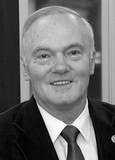THEORETICAL FOUNDATIONS OF CLASSIFICATION OF ADAPTIVE SPORT DISCIPLINES BY PHYSICAL LOAD INTENSITY
THEORETICAL FOUNDATIONS OF CLASSIFICATION OF ADAPTIVE SPORT DISCIPLINES BY PHYSICAL LOAD INTENSITY
Keywords:
adaptive sport, intensity of physical activity.Abstract
Objective of the study was to classify sports disciplines of adaptive sports according to the level of intensity of competitive loads.
Methods and structure of the study. To achieve this goal, an analysis was made of modern scientific publications and dissertations devoted to the study of improving the performance of Olympians and Paralympians, their reactions to competitive loads. An attempt was made to define universal criteria and approaches to classification. The search depth was 10 years.
Results and conclusions. Taking into account the variability of the content of competitive activity, approaches and methods for determining intensity zones, types of disorders in athletes, in the sport of persons with lesions of the musculoskeletal system (LMS), the classification of disciplines of adaptive sports was carried out taking into account the pulse zones during the competition, lactate indicators after the competition , and comparison of the time of performance of competitive activity with the power of muscular work.
The authors note that due to the lack of empirical data on the physiological and biochemical reactions of the body of Paralympic athletes, some positions of the classification were determined by extrapolation, and, therefore, can be revised as new data become available.
References
Goldberg N.D., Kotelevskaya N.B. Biokhimicheskiy kontrol v sisteme podgotovki paralimpiytsev [Biochemical control in the training system of Paralympic athletes]. Innovatsionnyye tekhnologii v sisteme podgotovki sportsmenov-paralimpiytsev [Innovative technologies in the training system of Paralympic athletes]. Proceedings national scientific-practical conference with international participation (June 29-30, 2016). Federal State Budgetary Institution "Saint Petersburg Research Institute physical culture”. St. Petersburg, 2016. pp. 44-48.
Novikova N.B., Kotelevskaya N.B. Otsenka biokhimicheskikh pokazateley podgotovlennosti lyzhnikov-paralimpiytsev [Evaluation of biochemical indicators of readiness of Paralympic skiers]. Tsarskoselskiye chteniya [Tsarskoye Selo Readings]. 2010. pp. 279-282.
Jeffries Owen; Simmons Richard; Patterson Stephen; Waldron Mark, Functional Threshold Power Is Not Equivalent to Lactate Parameters in Trained Cyclists. Journal of Strength and Conditioning Research: October 2021. Vol. 35. Issue 10. pp. 2790-2794.

Downloads
Published
Versions
- 28-04-2023 (2)
- 18-04-2023 (1)

